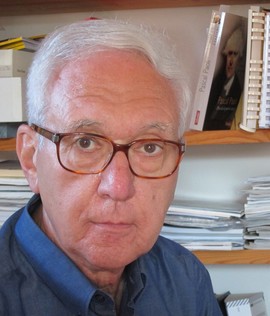What is the course about?
This course is designed as a vocabulary of the main terms used by all of us when talking about local as well as world politics. We often use these terms without a proper awareness of their meanings and connections, a circumstance not exactly helpful for any attempt to understand how politics really works, regardless of our wishful thinking or simplistic morality or easy cynicism.
Now, if we want to go deeper into the workings of politics - the only serious starting point for those who want reform - we must agree to begin with very abstract notions. This includes the general definitions of what politics, conflict, power (incl. force/violence), and what legitimate power mean (Part 1: What is Politics?). On these premises, we will then explain the still main political institution, the state, and peer into the dynamics of war and peace that has dominated the relationships between the states (Part 2: How Does Politics Work?). Since with economic globalisation, which has restricted the room for political action, things are getting much more complicated on the planet, and more challenging outside of it (man-made climate change starts in the atmosphere), classical notions have to be rethought. The very nature of the threats endangering our global commons does not leave the definition of politics (Part 3: World Politics and the Future).
This course does not aim at communicating any 'message' as to how politics ought to be. However, we will obviously try to clarify the main concepts - freedom, equality, justice - concepts we will make use of while talking about values and principles in politics. This is, what is called 'normative political philosophy' and is regarded here as an important chapter of political philosophy, not the whole of it (Part 4: Ethics and Politics).
What will I learn?
At the end of the course, you will have achieved a clearer and less confused awareness of political vocabulary, thus gaining a more complex, more autonomous and more critical understanding of political processes. If you are a student of political science, law, sociology and economics you will gain better tools for catching the overarching sense of processes. This will help you overcome an otherwise fragmented perspective and perspective.
My teaching method aims primarily at defining and discussing concepts, not illustrating authors or providing historical narratives; needless to say, there will be plenty of references to authors, books, events and processes, in particular with regard to the evolution of political modernity.
What do I have to know?
Due to my conceptual approach, to follow this course you do not need a prior knowledge of philosophy or political science, just the degree of general culture needed to pass the final high school exam, be it Abitur, maturità, baccalauréat or 高考(gao kao).
Suggested readings and a personal message from the author (course instructor) (State: May 2018)
Dear followers of my MOOC,
I am particularly glad to welcome you to the new run of my course Political Philosophy: An Introduction, the first after the iversity platform, for which the MOOC was created, has found a new home in the vast and prestigious building of Springer Nature.
The other novelty is that I have finally written and published the textbook that from the very beginning I had in mind as a ‘solid-state’ companion to my lectures. You will find in it questions and thoughts I could not fully develop in my speech due to time limits. It is a companion you can choose to turn to or to make no use of according to your perceived interest.
Here is the title
Furio Cerutti Conceptualizing Politics: An Introduction to Political Philosophy
London: Routledge 2017, pp.218.
It is available as an e-book as well. More information at https://www.routledge.com/Conceptualizing-Politics-An-Introduction-to-Political-Philosophy/Cerutti/p/book/9781472475718.
From time to time I will check the ‘Discussion’ page on the website and reply to your queries. Questions of technical (e.g. viewing or downloading) or administrative (e.g Statements of Participation) nature should be sent to support@iversity.org.
Wishing you a fruitful, though sometimes laborious journey (philosophy is not a gala dinner!) through concepts and categories
Furio Cerutti
Course Structure
Chapter 1:
Aim and method of the course. General information. Two definitions of politics.
Chapter 2:
Disassembling the classical definition, and its components: Conflict, (Legitimate) Power, Force.
Chapter 3:
Questions about power. A word on political philosophy.
Chapter 4:
The subjective side of politics, legitimacy, political identity and political obligation.
Chapter 5:
Political order, political institutions, models of order: From Aristotle to Hegel.
Chapter 6:
The (modern) state. Basic thoughts on democracy.
Chapter 7:
The states: Power, peace, and war in the anarchical society.
Chapter 8:
Globalisation and global governance.
Chapter 9:
Global challenges and politics after modernity.
Chapter 10:
Liberty and equality.
Chapter 11:
Justice.
Chapter 12:
Ethics and politics in modernity.


